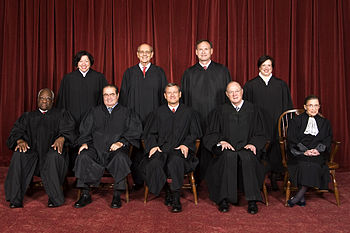In thousands of homes across America, hundreds of tenants are living rent free. It’s not a squatter crisis. They’re teams of Amazon employees, getting paid to listen to what people say to their Amazon Alexa devices.
According to a survey from Coldwell Banker and CNET, primary users of smart homes such as Amazon’s Alexa or Echo, Google Assistant or Apple Home Pod are young people. The race for the latest and greatest technology in the last ten years has been more ramped up than ever. The companies then have no problem getting into the homes of millennials– they’re in 47 percent of millennial homes.
If privacy wasn’t a concern for them at the time, it is now.
Amazon got in some hot water once the story broke in April that Amazon employees were listening to recordings of commands given to Alexa. The employees listened to the commands, transcribed them and fed them back to the device. Amazon said it did this to help “train our speech recognition and natural language understanding systems, so Alexa can better understand users’ requests, and ensure the service works well for everyone.”
It would be easy for someone, especially someone who doesn’t use these smart home devices, to say that the users are at fault. Surely, one could read the User License Agreement in depth before taking a device out of a box. Anyone could scrutinize the terms and conditions before opening their freshly updated iTunes. The user can be held responsible for understanding these lengthy and often complicated legal documents, but much more practically, they shouldn’t be.
Companies are duping their consumers into giving up privacy to the extent of recording them in their homes without their consent. They need to be held accountable for this. In the end, they are the ones responsible for protecting the consumers.
The User License Agreement, also known as the loophole that companies use to rope users into giving up more than they think, is the little piece of paper that comes in a package. It’s the fine print, written in legal and technical jargon. On a practical level, no one should be expected to read it. It can be thousands of words long and hides clauses in complex language the average reader wouldn’t understand. Technically speaking, the User License Agreement is a contract that you “sign” once you open the package. You are agreeing to the company’s terms.
This is an outrage to anyone who owns a smart home device. Your information is being stored by these huge companies so that they can be able to dissect and learn. The buyer is a lab rat’s and the company are the scientists. Nobody wants to be secretly listened to for someone else’s convenience. Privacy became a basic right at the very founding of America when the colonists decided they didn’t want British soldiers in their homes. Now, those strangers have entered disguised as convenience in a box.
Having some type of smart home device around makes doing general activities such as reminders, alarms and even as simple as asking to turn on the lights a lot easier by using your voice. The downfall to this is that the devices listen out for you. Right now, the only solution is complete exclusion.
Just don’t purchase any smart devices and you will be safe. It is most likely your best shot so that your privacy remains private.
If companies are going to listen and gather data from us, for the next generation our private information will be no more. Technology is growing each day. There are smart refrigerators, toilets and even trash cans. Pretty soon everything that a person owns is going to be some type of smart device that will gather data from us. It’s up to companies to make sure that this pattern doesn’t continue.
Amazon confirmed that divisions of its staff had the specific job of listening to other recordings for transcribing. It claimed that doing so would help with the “understanding of the human speech,” which sounds like it was written by someone from another planet.
Amazon promised that it took the “security and privacy of our customers’ personal information seriously.” Clearly, though, it’s just a statement. Not unlike another company that’s also under scrutiny for this.
Facebook, which also claims to take their users’ privacy as seriously as Amazon, recently underwent an entire investigation, and CEO Mark Zuckerberg had to testify before Congress. The scandal was the sale of user information to a Russian information bank. The response? Some ads that said “I’m sorry” and then a product release of a smart device with a camera.
The definition of privacy is “the state or condition of being free from being observed or disturbed by other people.” Listening to conversations is the whole meaning of being observed. Amazon must have a different definition to what the word privacy means to them.
Even if Amazon’s claims are true that employees get no other identifying information, it’s worth mentioning that banks often use voices to verify identities.
Having your conversation secretly recorded and played to Amazon workers isn’t just an invasion of privacy but it’s inhumane. Amazon has shipped 6.3 million Echo units in 2018 alone. So next time you want to discuss a serious personal matter with someone, make sure that you are aware of the surroundings because you may never know whether or not you are a victim of Amazon’s plan to “understand human speech”.



